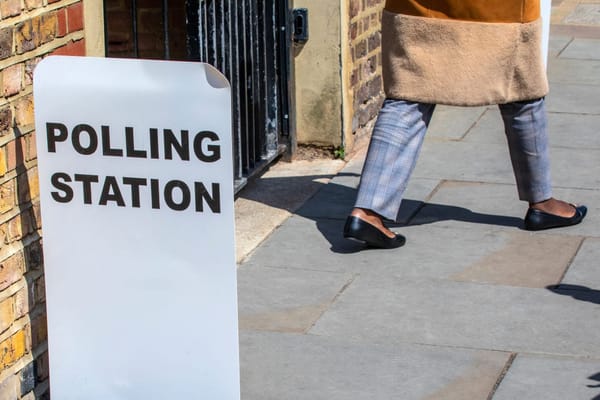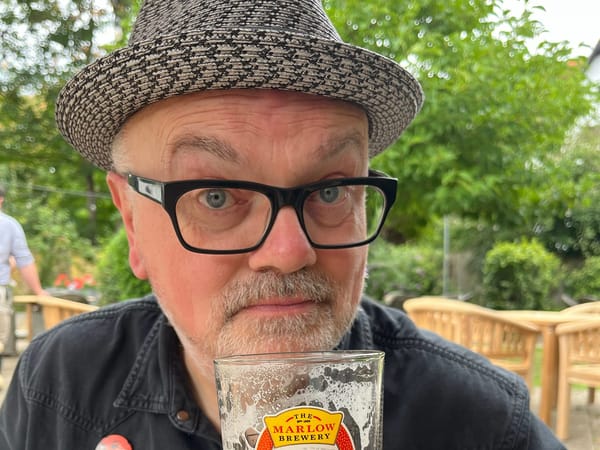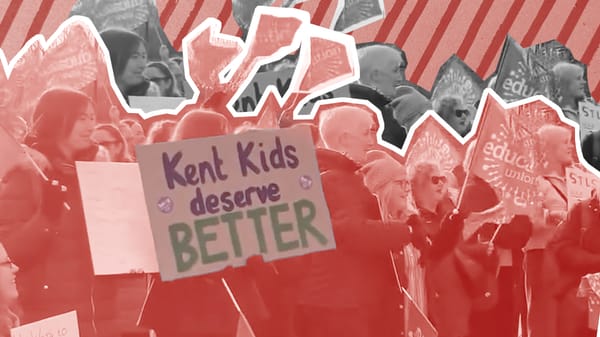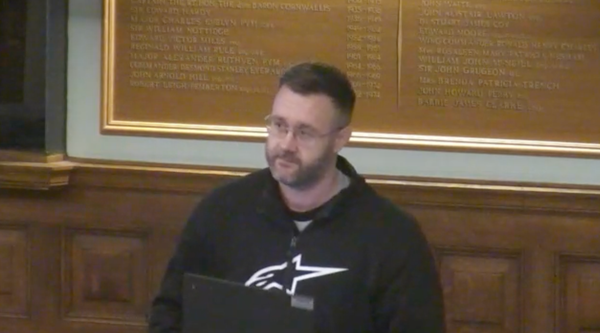"We should wave our flags more"
What we asked Matt Boughton, the Leader of Tonbridge and Malling Borough Council
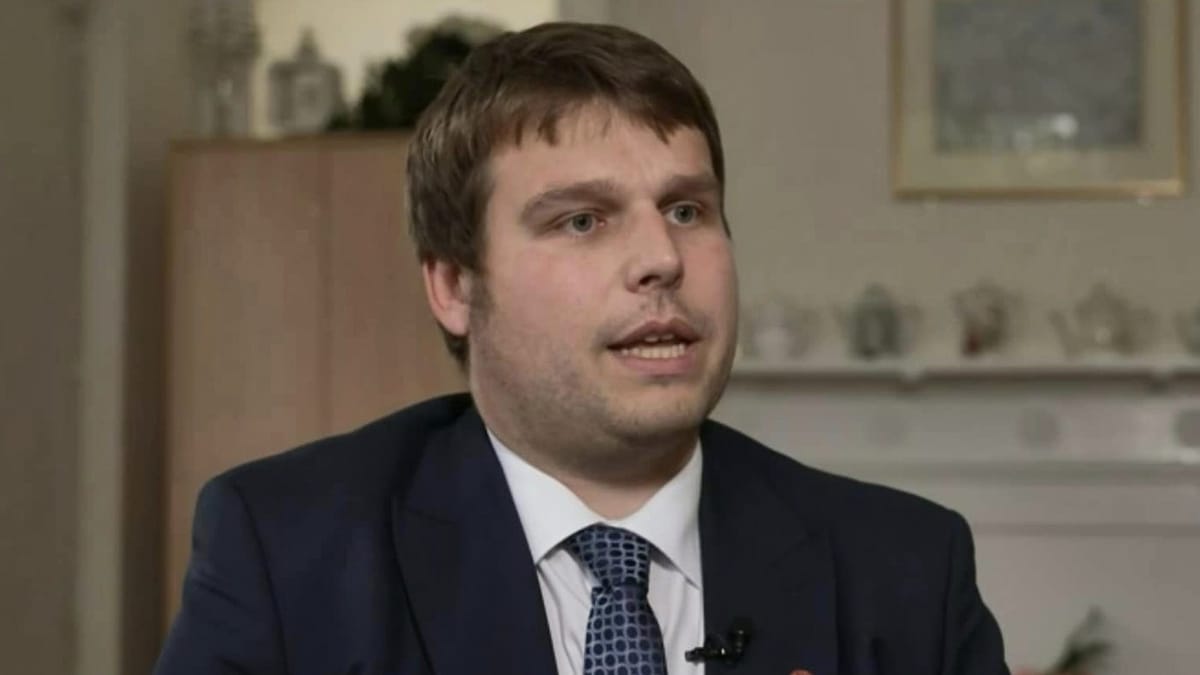
Councillor Matt Boughton is the Conservative leader of Tonbridge and Malling Borough Council. He talks with Steven about his route to becoming a Conservative councillor and council leader, his thoughts on local government reorganisation, how confident he is that there won’t be any defections from his group, and lots more.
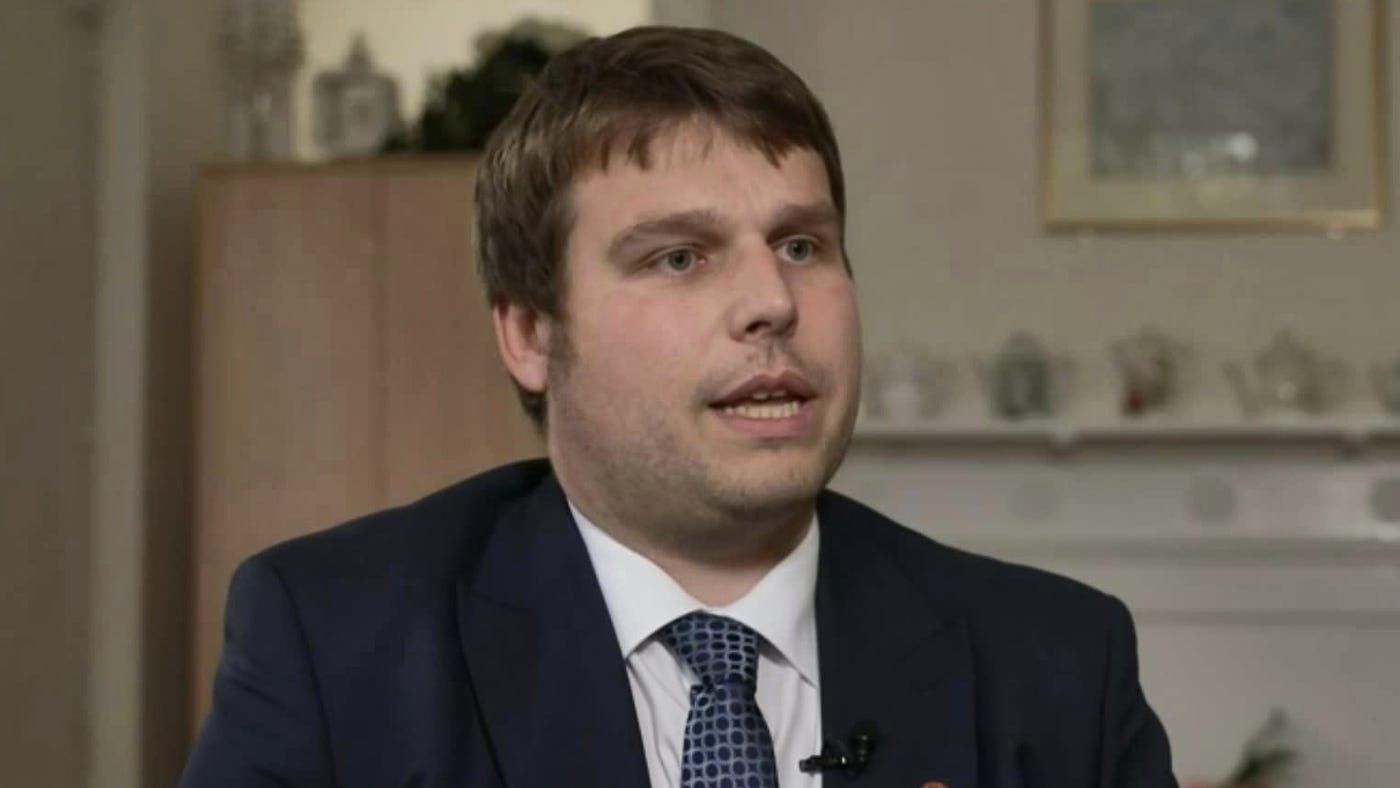
What is your official occupation?
I’m leader of Tonbridge and Malling Borough Council. That’s my job. I still do work part-time for Tom Tugendhat. I’ve been his office manager. I still do bits and bobs for Tom and help him with stuff there. I also have another role at Local Government Association, which started last month, and that’s chairing their Safer and Stronger Communities Committee. That role effectively is representing local government nationally on areas related to antisocial behaviour, crime prevention and democracy and election issues, which is quite interesting. I’m enjoying that so far.
Do you have any other additional roles, paid or unpaid?
I’m also a football referee. I’ve done that since 2007.
What does your average day entail?
My average day starts at eight o’clock in the morning. I’ve got a one-year-old daughter. I like to get up and see her. Ordinarily, there’ll be lots of meetings, lots of internal meetings with the officers at the council. I’ll be going out to visit businesses or residents. I try and meet as many people as I possibly can. Particularly in the last year, lots of Kent-wide meetings about reorganisation and devolution. Obviously, catch-ups with Cabinet members and with members of my group about particular issues. We meet in the evening, like most councils do, and I think should, because that makes it accessible. More often than not, there’s an evening meeting or a parish council meeting to attend or a community meeting. After that, anything I’ve not done during the day, certainly in terms of emails, gets caught up on until midnight, basically, in which I force myself to bed. It really is nonstop, and the in-tray is never empty at all. I’d like to have a little bit of a structure to my day in terms of trying to do as many meetings as I can in the daytime, as many visits in the day.
Where are you at the moment? Where am I speaking to you from?
You are speaking to me from my office in the council offices at Kings Hill.
Why are you not at (Conservative Party) conference?
Three reasons. The first reason is I went last year, but I was doing Tom Tugendhat’s leadership campaign. My God, was that hassle beyond belief. It’s good fun if you see what I mean, but it was tiring, and I think I was scarred from that in some ways. Not in a bad way, but it was a very different thing. The second reason is a practical reason. It’s in Manchester, not Birmingham. It’s further to go. We have to pay from our own pockets. Being council leader doesn’t make you a millionaire. There’s a financial cost. I’ve got a wife, a mortgage, a daughter, a cat to look after. The third reason is I simply have a lot to do. I didn’t need to go. If anyone who has invited me to any fringe event wants to see me that much then I’ll tell them the door is open. That’s a great way of weeding out the invites.
As council leader, are you the leader of a minority or is it a coalition?
It’s partnership we have in Tonbridge and Malling. Effectively, after the last elections, we had 20 Conservatives, and we needed 23 to get a majority. We couldn’t quite get to 23, but with two independents from the Independent Alliance Kent Party, we’ve got 22. 22 Conservatives and Independent Alliance against 11 Lib Dems, 8 Greens and 3 Labour. That also took you to 22. The mayor at the time had to use his casting vote to elect me as the leader of the council, having just got in on his casting vote from the previous mayor. It was a bit tight, shall we say.
Are you now leader for the whole term? Does that change every year when you get a new mayor?
You get elected as leader for a four-year term under our constitution. Now obviously, since then our position has been strengthened, because we gained a seat from Labour in a by-election in Snodland East in May. We’ve now got 21 Conservatives, but we remain in partnership with the Independent Alliance Kent Party. It’s now 23-21 in our favour. I don’t face a vote every year like they do in some councils. I carry on until the council decides to get rid of me, really.
But it does influence your leadership style in terms of you’re in no overall control, even though you’re in partnership and by its very nature, you need to take a much more collaborative approach. Two years before, when I had a majority, I always tried to collaborate as best I could with all of the opposition parties, regardless of how much I agreed or disagreed with them to identify those areas of agreement and focus on them. That made it easier, doing that groundwork. I like to think the last two and a half years have been considered a relative success, given our numbers mean we could have ended up in a position in which it could have got unstable quickly.
How did you end up becoming the leader? Why did you want it?
It goes back to 39 Conservatives at the time in 2021. That’s when I became leader of the council. My predecessor got a new job, and he resigned quite suddenly. One of my colleagues, sadly she lost her seat in 2023, submitted a nomination form for me. She did it at four o’clock in the morning. I didn’t know until I woke up. She thought I was the right person for the job, and then basically went on, with a couple of her colleagues, this lobbying spree for me. I was chatting with my wife, and I was on the back benchers at the time. I wasn’t in a leadership position or anything. I’ll go for it, and if I get it, great, and I’ll make the best of it, and if I don’t get it, that’s absolutely fine. I’ll still be loyal and supportive. I got it, which meant that I’m actually prepared for the role very much because this happened, I think, over a few days.
I know that some of my councillors have great sympathy with what Reform, as do I, on some issues, but on others, I couldn’t think of anything worse than joining Reform.
In the news, there have been defections occurring from the Conservatives. Are you fully expecting to still be at 21 councillors by the end of the year?
I very much hope to be at 21 councillors. I like to think, as a group leader, I keep in touch with my councillors both in terms of what they’re doing as councillors, but also personally too. I think it’s important. You’ve got duty of care to your members, and look, I know that some of my councillors have great sympathy with what Reform, as do I, on some issues, but on others, I couldn’t think of anything worse than joining Reform. I don’t think I’ll lose any councillors, but who knows?
Just to ask the question, have you given any consideration to changing party?
No.
I’m too dyed-in-the-wool Conservative. That’s the thing. The Conservative Party’s been very good to me.
Who has been the best leader of the party during your membership?
We’ve had a few, haven’t we?
I would say probably David Cameron. He was the first leader I knew, and I think he’ll go down as one of those underrated Prime Ministers. I mean, to keep the coalition going five years was a good effort, I have to say, both from him and Nick Clegg and Lib Dems, to be fair. He then got the majority in 2015, and obviously, because of Brexit and how it ended, it was a real shame, because I felt that actually had the potential to do some good for the country.
I think since 2016 until 2024, the Conservative Party has, in one shape or form, laid out its disagreements in public and that resulted more than anything in the General Election result last year. I think in terms of stability, definitely David Cameron.
In your time as a member, the party has had a number of leaders. How confident are you that your current leader will see you into the next General Election?
I’m confident that she will, absolutely. I think Kemi has been true to her word in terms of her campaign was all about we’re going to renew the party, we’re going to look towards 2030. She wasn’t going to see results by 2025, and she delivered on what she said in her leadership campaign. I think the problem for the Conservative Party is that we’ve got a huge legacy from the reason that we were kicked out of government. Time will heal to some degree, but we need to present ourselves as being serious.
We also need to present ourselves as being a more conservative party than Reform. The announcement on stamp duty is a brilliant example of this. Reform, they say stuff on migration that is absolutely in line with what lot of conservatives think, and I’ve got great sympathy for that, but they are not economic conservatives at all. They are high tax, spend. You see that in their views on things like the two-child benefit cap. I’m an economic conservative. You asked me about why I’m a conservative in the first place. It’s the economy that matters a lot to me. I think that’s how you generate growth, and you generate that feeling and that sense of place by having a good strong economy, by having people who’ve got disposable income. I think we’re still the party best placed to do that. That’s where Kemi needs to park her tank on that lawn. The more that we can do that, the quicker the recovery for the Conservative Party nationally can become.
Obviously, at Conservative Party conference, there’s been topics that have hit the headlines. Should the UK leave the ECHR (European Convention on Human Rights)?
It’s inevitable that we have to now. Ideally, you’d reform it, but I think that the problems that it has now caused are now of such a scale that we’re going to have to leave it if we’re to address the issues that people care about.
Are judges enemies of the people?
I don’t think so. Fortunately, I’ve never had that much involvement with any judges or ever appeared in front of one or the judicial system. I think part of the problem we’ve got is that, actually, sentences for some crimes in this country are just far too low. We need to address that, I think, as people involved in policies.
Are people studying English at university wasting their time and money?
No, because I think you need subject specialists in every single area. I think there is a broader question about the value of university degrees as opposed to apprenticeships, and actually just encouraging people to do apprenticeships or go straight into the workplace or work-based qualification, rather than going to university as default. I went to the University of Sussex, I got a politics degree, and I got a 2:1, and that’s jolly good. But if I think about why I went there, I went there because it was the default that I was doing. Politics was what I’d enjoyed doing in sixth form. I thought I would study it more at university. I’d have liked to have the opportunity to think a bit deeper about that. I think if people have the opportunity between the ages of 14 to 18 to think a bit deeper than that, then actually that gives them better life chances.
I’m not blaming my teachers. Oakwood Park Grammar was a good school. I really enjoyed it there, particularly in my later years. I’m not blaming the teachers at all one bit, and I think careers advice has moved on significantly, but they judged themselves in their exam results, and that meant getting people into good universities. I was on that conveyor belt.
What is an unpopular opinion you have amongst council leaders?
Oh, amongst council leaders, that’s a really good question. Council leaders in Kent, other than Dartford and Sevenoaks, are all very left-wing. Most of my views are probably unpopular on wider political stuff. I’m not necessarily saying it’s unpopular, but in terms of reorganisation, I am signed up to the principle of unitary authorities, and that might be unpopular with some of my colleagues and council leaders. I think the way they’re implementing this current reorganisation the government are doing is just appallingly bad in many of the process bits, but the principle of having unitary authorities, one council that does everything, is one that actually you can engage me in a conversation. I’m not going to turn around and say “No, I am wedded to the two-tier system.”
In that case, let’s engage you in the conversation of local government reorganisation as it is happening.

